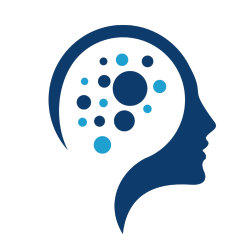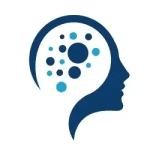The rise to competence hinges on the agility of your cognitive processes—on the speed with which your analytical faculties can engage and propel you from flighty optimism to informed skillfulness. However, framing this as merely a battle between the intuitive and analytical pieces of your psyche misses the mark; instead, the essence of swiftly and effectively acquiring new skills lies in harmonizing these cognitive forces. The sooner your intuitive and analytical capacities collaborate, the more seamlessly you navigate the path from novice to master.
4 Levels of Competence
The Four Stages of Competence tell us about the psychological progression you carve out as you acquire new skills. The stages are:
- Unconscious Incompetence (aka, ignorance) – “I don’t know what I don’t know.”
- Conscious Incompetence (aka, awakening): “Aww Snap! I don’t know what I don’t know.”
- Conscious Competence (aka, learning): “I know what I’m doing, and now I need to pay attention to produce good results and improve my skills.”
- Unconscious Competence (aka, mastery): “I feel I’m an artist who can naturally design and paint the outcomes I desire as though their achievement occurs automatically.”
This stylish model from the 1960s gives you a map as a learner to follow, and as an educator to follow with those around you. You can and will become an expert at being human.
Unconscious Incompetence
First up is Unconscious Incompetence, a state in which ignorance reigns unchallenged. Here, you don’t know that you don’t know what you’re doing and, worse, don’t even realize how much you don’t know. There are a few reasons for this lack of awareness. Sometimes it’s just that you don’t know what you don’t know. Or perhaps you’ve rejected knowledge in favor of an ego-driven refusal to admit something that would invalidate your performance up until now. Or maybe your sentiment goes something like, ‘It’s not worth learning the correct way because it’s easy anyway’. Or maybe you’re convinced that what you’re doing isn’t a skill at all. Here you’re ruling out the possibility that there’s even something to discover. In any event, you’re making plenty of use of how easy it is to rely on historical methods and false intuition. In so doing, you’re ineffectual at best, and a positive hindrance at worst.
Imagine you are going to be flying a plane. You are put in the cockpit; never before having flown an aircraft. Although, you have certainly have spent several years happily enjoying the food, comfort and service of business class, this offers no solace right now. Now, suddenly you are facing the responsibility of flying a plane, keeping the passengers safe and secure as you hover a hunk of metal in suspense over the earth. This recognition propels you out of your state of ignorance into a clear, sober sense of incompetence. Here the lethal mix of confidence and lack of knowledge is at its most potent.
Hopefully you’ve never experienced this degree of Unconscious Incompetence in the cockpit of an airplane, but it also occurs in the mundane setting of every day life. Unless some direct encounter with your limitations moves you forward, you may remain in this first stage indefinitely. But the vicissitudes of living will likely bring you to the second step: Conscious Incompetence. This is the beginning of the growth process that moves one from Unconscious Incompetence to Conscious Competence.
Conscious Incompetence
You’ve entered Conscious Incompetence because the realization that you are inadequate at something, however humiliating, is vital and necessary to becoming better. You’re on your way to being a good practitioner of a desirable skillset. You still don’t comfortably know what you’re doing, but you’re now consciously aware of the fact, and your intellect has engaged. While realizing you are inadequate to perform a skill sufficiently, you’ve become motivated to increase your desire to learn. Now, you are beginning to wonder, “What are the questions that would be helpful for me to be asking?” Two questions you will do well to consider from the outset of learning any competency are, “How teachable am I?” and, “What is my willingness to accept change?”
Keeping with the plane analogy, imagine coming to terms with what you are getting into, while sitting at the controls, surrounded by the complexities of aerodynamics and avionics. ‘What are all these lights, sounds, and instruments? How does the plane actually fly? What do these buttons do? How are you supposed to use the screens and controls?’ You want to know!
You are now on the doorstep of true learning, armed with a better understanding of how much you don’t know and what it will take to learn it. You are in the stage of Conscious Incompetence, and the skills that once seemed impossible are now possible with the right type of commitment. Realization, however, is not the same as a skill because its acquisition has not yet been achieved; that will come soon in the stage of Conscious Competence. You are now keen on the power of awareness in turning ignorance to possibility, the necessary foundation for the skills and knowledge that will follow.
Conscious Competence
Now, the Four Stages of Competence have brought you to the third stage: Conscious Competence. The lightbulb goes on, and you can finally say: ‘Wow, I actually know what I’m doing!’ It’s the moment when you have acquired and processed some new knowledge to the point where you can appraise situations and thoughtfully apply your skillset properly. A new competence has been acquired, by dint of practice and experience but still requiring much of your attention in order to maintain and apply it. You’re engaged consciously and deliberately with your task, your actions informed very much by a sense of how and why.
Back in the cockpit of an airplane, Conscious Competence represents the ability to use balance and control for keeping the air vessel straight, calmly learning from errors, and knowing what’s required of you for being a good navigator in the air. This level of competence helps you perform well, laying the groundwork for teaching a first officer how they can do a better job of reading the altimeter. The ability to teach is a natural byproduct of your knowing the ins and outs of the skills you are using.
The value of this stage cannot be underestimated! The majority of learning and skill-building happens here. Intentionally practicing to the point of imprinting the nuts and bolts of a skill, as well as the nuances, onto your subconscious mind. Conscious Competence is important not just for your learning, but because it has the potential to amplify the learning of others by their observation.
Unconscious Competence
The top of the ladder is the attractive domain of Unconscious Competence, where not only have you achieved mastery, but have become masterful. Instead of your initial intuition misleading you as in the first stage, your intuition here hits the bull’s eye 100 times out of 100 throws. This is the flow state. Things are done without thought, done smoothly, done beautifully, and done in a way that’s motivated by muscle memory and a deep familiarity from having practiced over and over and over and over and over again. This is where the action is done with you rather than by you. With ease and grace and naturalness, you are operating ‘in the zone’ at a level that is intrinsic to the core of you.
It may be difficult imagining this journey of competence from the viewpoint of a complete novice pilot to the extreme mastery of the pilot who landed the doomed aircraft in the frigid Hudson Bay in 2009. But think, if years suddenly pass with consistent, dedicated practice, you can fly like you breathe. Doesn’t that sound amazing? There’s one problem with achieving Unconscious Competence. The paradox of mastery is that this level of expertise becomes so ingrained, it takes a lot of careful reflection to describe the how and why of what you do. When process becomes so unconscious that you no longer register the logic of your operations, the challenge of instruction might be with expressing the processes that guide your actions.
Mastery, in other words – the highest apex of expertise – is simultaneously a stopping point and a new beginning. With mastery incorporated into your being, you are propelled to push the envelope of competence a bit farther…just a little more. Either pulling you or propelling you forward, the avenue for discovery and growth becomes either entering new roles in which to apply your current competence from a different understanding, such as becoming an air traffic controller, or becoming a mentor for others through a flight instructor license. Now it’s time for learning how to meaningfully convey the knowledge of your unconscious competence. Mastery, then, is not an end in itself but a new beginning.
Final Thoughts
Seeing the Four Stages of Competence as a simple or single development is to ignore the complex elements of learning and developing competence in various skills in any discipline. You rarely move through the Four Levels of Competence in a linear way, but in a process of rise and fall, as you find more and more that you don’t know, even as you become more and more competent in other things. As a result of this complex developing venture in skill acquisition, the practiced experience of growing in competence shows that you might well be in all four stages in different aspects of the same skill at the same time.
So the road to mastery seems to correlate heavily with the responsiveness of your cognitive information-processing machinery – with how fast your analytical powers can engage and carry you from mindless optimism to effective skill. However, if you conceive this as a war between the limbic brain and the neocortex, you’re missing the point. In fact, the secret of rapidly and effectively acquiring new skills lies precisely in the coordination of these two beautifully designed cognitive centers. The sooner your intuitive and analytic powers begin to work together, the more gracefully you navigate the novice-to-master pathway.


